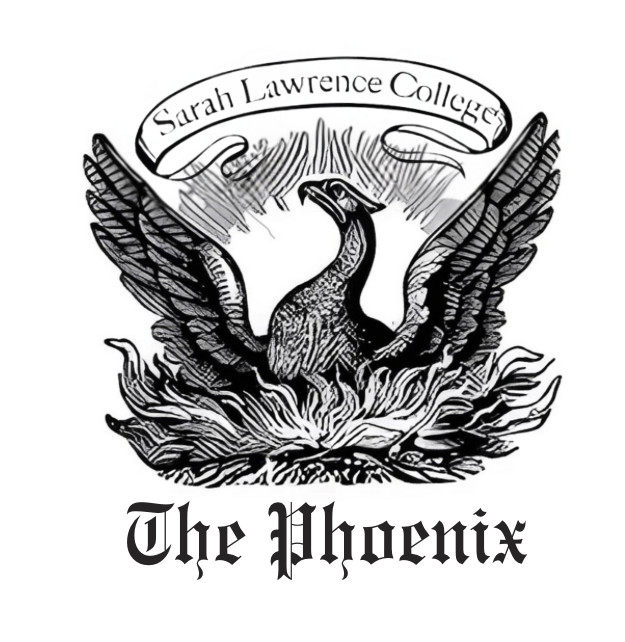2016 CAMPAIGN COVERAGE: Student Opinions on Campus
Presidential candidates Bernie Sanders and Hillary Clinton at the first Democratic debate. Photo credit: Lucy Nicholson/Reuters
It’s all over the news—whether it’s the first page of The New York Times or the #1 Trending Topic on Twitter, the coverage of the 2016 race for the White House is nearly impossible to miss. Keeping in mind that Super Tuesday is approaching, many across the nation have already chosen a candidate to dedicate support to in the primaries and Sarah Lawrence students are no exception.
It’s no secret that SLC is a campus that leans to the left politically. The results of a poll issued by The Phoenix last month, which asked respondents to explain where their support lies in the 2016 race, supported this claim. The overwhelming majority of respondents identified as having a liberal ideology. For many liberals nationwide following the race, the choice in candidate comes down to Democratic primary frontrunners Hillary Clinton and Bernie Sanders. Sanders is a self-proclaimed democratic socialist. Clinton, as she phrased it in the recent Democratic debate, is a “progressive that likes to get things done.”
Although Clinton has thus far polled the greatest amount of support among Democrats across the country, support on SLC campus seems to deviate from this trend. Although a Clinton following does exist, the results of the poll indicate that the greater part of support among students is centered around Bernie Sanders.
The poll posed the question of why students choose to support the candidates that they do. Although responses varied, some patterns did emerge. It seems that Sanders draws a great deal of popularity from his honest approach to tackling many pressing issues—including college affordability, race relations, health care and income inequality—head on. Many students admire his passion and are simply attracted to the prospect of socialism.
In the first Democratic debate, which occurred on Oct. 13, Sanders did not hesitate to emphasize the importance of these issues. In spite of his white hair, Sanders waved his fists with fervent calls for a revolution with the energy of a much younger man. This is exactly the kind of spirit that many students on campus find attractive in a presidential candidate. Judging from the high energy reactions of the crowd gathered during the Sanders debate watch party, these calls to revolutionize and change the American political system only reassured many students in their decision to support Sanders.
“It reinforced what I already thought of him,” said Maydha Kapur (’19), “And I like that he didn’t criticize other candidates.” Like Kapur, many support Sanders because he is so anti-establishment—starting from his refusal to accept Super PAC money to his reluctance to engage in hostile politicking.
That being said, SLC campus is not exclusively “feeling the Bern.” For others like Tyler Noel (’17), the rhetoric is not enough. “The revolution he’s talking about is unrealistic,” she said. “If he is nominated, the Republicans will tear it apart.Supporters like Kapur argue the opposite. “Many people think he wants to change the system—but that’s not the reality. Redistributing is not unrealistic,” she said.
When it comes to finding an alternative for Sanders, support appears to be mixed. Based on the answers provided in the poll, some students support Clinton for her vast experience—as Senator, First Lady and Secretary of State. Experience is an undeniable strength of Clinton’s which she displayed during the debate. With seamless familiarity, she consistently seized the conversation and brought it back to her coherent policy stances. The majority of media outlets declared Clinton the winner of the debate for this very reason, and although many online polls offered a different opinion, some students on campus were charmed by her presidential appearance and technique.
Spenser Dettwyler (’18), who went into the debate undecided, came out with newfound support for Clinton. “She’s pragmatic,” he said.
Still, it’s important to note that Clinton and Sanders are not the only candidates in the race. About fifteen percent of students who responded to the poll did not identify as liberal, but rather as moderate and conservative. Those who favored Republican candidates in the poll expressed concern for partisan gridlock, and the realistic possibility that a Democratic president could have trouble working with a potentially Republican controlled Congress.
Although this dissenting minority does exist on campus, the reality is that it is a silent minority. Many students are hesitant about expressing their opinions in print for fear of being singled out.
“One of the greatest problems is that the school does not all lean one way, but it’s not always obvious,” said Sam Abrams, professor of politics. “When we create a safe space to talk about it, people are much more thoughtful, and you discover that there are many different opinions on campus.”
With all these different opinions, another reality is that many students simply have not made up their minds yet. The 2016 presidential election is a year away, and surely in that time opinions are bound to change.
Whether or not a political revolution is truly on the rise, one thing is for sure. Sarah Lawrence students are doing what they do best: staying informed and paying attention.
Note: The poll conducted by The Phoenix was not a scientific poll, therefore all patterns and observations drawn from its results are simply that—observations, not definitive conclusions.
Kate Bakhtiyarova '19

